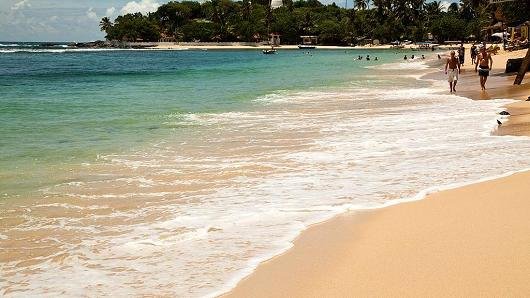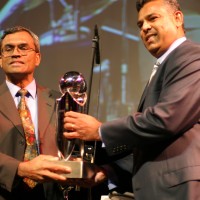Sri Lanka would have been the world’s top tourist destination, if not for the decades lost to the country’s civil war.
That’s the firm conviction of Roman Scott, founder and chairman of the Calamander Group, which is why he decided to put his money into the country’s hospitality sector right after Sri Lanka’s internal strife ended.
“I was one of the first people on the plane, there was a picture of me arriving in May 2009 before the dust was settled, because I already had a number of investments that I could just turn the buttons on,” he recalls.
Scott’s first investment in Sri Lanka was in the food and beverage sector, while he took time to scour the country for a suitable hotel property. He looked at more than 30 potential investment spots before finally settling on a resort in Unawatuna, a coastal town in Galle district that’s famed for its beautiful beaches.
Since then, he has reopened Unawatuna Beach Resort, known to Sri Lankans as UBR, one of the country’s most storied resorts, as Calamander Unawatuna Beach. Scott’s company also owns the Coffee Bean & Tea Leaf franchise in Sri Lanka.
“Before Bali and Thailand were developed [as tourist destinations], Sri Lanka was the place to be,” he says, noting that in the 1970s the island was popular with German and Swiss tourists, a phenomenon that was the very start of the North European winter-sun holiday market.
Now Sri Lanka’s time has come, and with its many attractions, the country has the potential to be the region’s top spot for tourists. But Scott, a British national with Sri Lankan roots, who previously was a partner at Boston Consulting Group in Singapore, does admit to being partial.
“My mother is Sri Lankan and we have a family home in Kandy,” the Oxford University graduate says.
“I love Kandy and for years, during my road warrior years in Singapore when I was flying all over Southeast Asia, this was my decompression spot. When I want some peace, calm and serenity, I would come here to chill out.”
While Scott is a big believer in Sri Lanka’s prospects, he also recognizes the hurdles to investment in this South Asian nation.
“Relatively and objectively, this is one of the best frontier Asian markets to invest in. The opportunities are remarkable, the people are remarkable, [but] the barriers they place in succeeding are also equally remarkable,” he laments.
The key problem, he said, is one of governance. “The policy-making mindset is pre-Perestroika, there are a lot of highly restrictive things that hold the country back,” Scott says, citing a lack of clarity on taxes as an example.
“There are top -line revenue taxes which we have to live with in the hospitality industry, but three months after the national budget and planned VAT were announced, we still don’t know what taxes we will be paying,” he says.
Despite the risks, Scott has faith that he will reap an attractive return on his investment in Sri Lanka.
“Like other frontier markets, you have to manage your currency exposure, and keep an eye on politics. I have target of a 25 percent internal rate of return, which I think we’re close to achieving,” he says. “But I’m a long term investor, this is a 10-year game for me.”
Scott, who now divides his time equally between base in Singapore and Sri Lanka, said the latter has a lot to learn from Southeast Asia’s most successful city state.
Sri Lanka cannot be like India or Bangladesh, he said, because it doesn’t have India’s large domestic market nor Bangladesh’s cheap labor. Instead, it is more like Singapore, so needs an open economic environment, with low taxes, low duties and a receptiveness to foreign investment and foreign labor.
“It is a fabulous story that just needs the shackles of policy-making to be removed,” he says.
“Sri Lanka has a huge opportunity to be the Singapore of South Asia, if it were to subscribe to liberal governance, and encourage entrepreneurship and productivity. If we could fix those three things, then there’s no limit.”










![TV-Poster-All-Exhibition-Sri-Lanka-in-Focus-USA-2025[1]](https://www.srilankafoundation.org/wp-content/uploads/2025/04/TV-Poster-All-Exhibition-Sri-Lanka-in-Focus-USA-20251-450x450.jpg)











